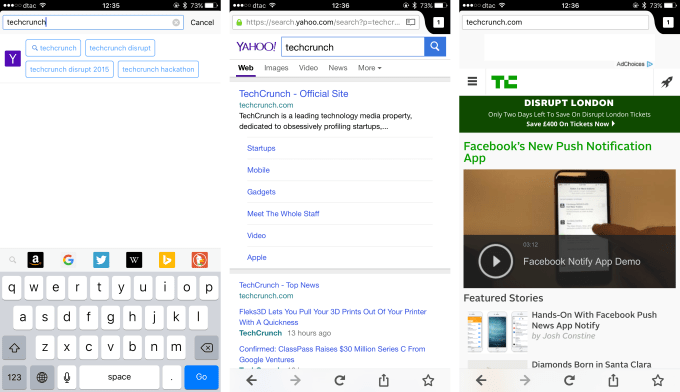Late last year, Mozilla debuted the public version of its Firefox for iOS web browser, and today the organization is rolling out a notable update in terms of its security. According to an announcement published to Mozilla’s blog, the browser will now introduce several features aimed at improving the security protections available in the app – useful especially in the case of a lost or stolen iPhone, for example.
For starters, the Firefox Password Manager, which is the feature that stores and autofills in your usernames and passwords across the web, can now be protected by a 4-digit passcode. That means if your iPhone ends up “out of your hands,” says Mozilla, your passwords won’t be able to be accessed by the third party in possession of your device. Of course, to even be able to dig into the browser to begin with, that person would have had to have bypassed the iPhone’s own passcode lock or Touch ID protection.
That being said, the added security should allow for peace of mind to those who more deeply care about their privacy.
In addition, for those devices where Touch ID is available, you can also choose to use your fingerprint to access your saved logins instead of a passcode, Mozilla notes.
While the security enhancements are the standout features for this latest version of Firefox for iOS (version 3.0), there are a number of other more minor improvements under the hood, also arriving in today’s build. That includes things like the use of Alexa’s ‘top 5’ sites at the default suggested tiles for new users, the ability to delete these default suggested sites, improved handling of links to Apple Maps and third-party apps like Twitter, the inclusion of default domains for inline autocompletion, and more.

For those who have yet to experiment with Firefox for iOS, the browser has been attempting to differentiate itself from Safari, Chrome and others with a variety of features, including what it hopes is better search prediction, an easier to use ‘visual’ tab management system, and incognito browsing. But at the end of the day, the browser doesn’t do enough to really stand out versus its competitors – and that’s reflected in its App Store ranking: #349 Overall (though a more promising #18 in Utilities).
However, better security features could give Firefox a boost among a particular crowd. While other browsers offer password sync, not all allow you to protect your data like this.
For instance, Chrome’s “Smart Lock for Passwords” protection feature works in Chrome and on Android, not iOS. Chrome, however, only displays your login information in the Chrome iOS app – to manage your passwords, you have to click through to a website. (But here, your login information could be helpfully saved for easier – aka less secure – access.) Meanwhile, in terms of Safari, Firefox for iOS is just catching up – to access your passwords from iOS’s Settings, you have to enter your passcode or use Touch ID.
